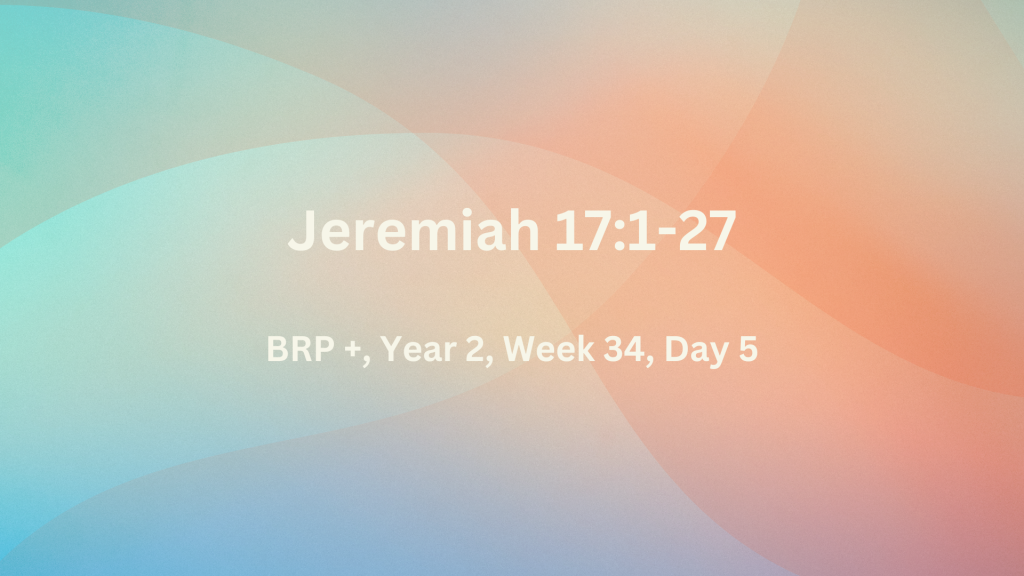Jeremiah 17:1-27
Q.1. How would Judah pay for her sins? Why should we trust in God and not mankind? How had Jeremiah served the Lord? What was his prayer amid the looming crisis? – (Jer.17:1-18)
God understands the plight of sinners, and knows that – 9 “The heart is more deceitful than all else and is desperately sick; Who can understand it? 10 “I, the Lord, search the heart, I test the mind, even to give to each man according to his ways, according to the results of his deeds (Jer.17:9-10). Therefore, Judah was going to be removed from the Promised Land – 3 O mountain of Mine in the countryside, I will give over your wealth and all your treasures for booty, your high places for sin throughout your borders. 4 And you will, even of yourself, let go of your inheritance that I gave you; And I will make you serve your enemies in the land which you do not know; For you have kindled a fire in My anger which will burn forever (Jer.17:3-4). Trusting in people rather than God had brought a curse on the people and the land (Jer.17:5-6). How different is God’s promise to those who trust in Him – 7 “Blessed is the man who trusts in the Lord and whose trust is the Lord. 8 “For he will be like a tree planted by the water, that extends its roots by a stream and will not fear when the heat comes; But its leaves will be green, and it will not be anxious in a year of drought nor cease to yield fruit (Jer.17:7-8). Jeremiah’s critics mocked him, saying – Where is the word of the Lord? Let it come now! (Jer.17:15). However, he maintained his trust in the Lord, ‘the hope of Israel’ (Jer.17:12). We discern the calibre of the prophet when, rather than turn against these people, he could say – But as for me, I have not hurried away from being a shepherd after You, nor have I longed for the woeful day; You Yourself know that the utterance of my lips was in Your presence (Jer.17:16). Nevertheless, the threats against Jeremiah were real, and he prayed to God – Do not be a terror to me. You are my refuge in the day of disaster (Jer.17:17).
Q.2. Whom was Jeremiah to address? How had the nation violated the Sabbath day? What offer did God make for keeping the Sabbath holy? Would the people change? – (Jer.17:19-27)
God had warned Jeremiah that his mission would bring him into conflict with his people (c.f. Jer.1:17-19). God now told His prophet to proclaim His message without fear or favour, to the king and the people at Jerusalem (Jer.17:19-20). Jeremiah reminded the people that their forefathers had disregarded the guidelines for keeping the Sabbath (Jer.17:21-23). He unfolded the basis for future blessings, should they – keep the sabbath day holy by doing no work on it (Jer.17:24). Obedience would ensure that there would be kings sitting on the throne of David, and people bringing worship and sacrifices to the house of the Lord (Jer.17:24-26). Dishonouring the sabbath would result in the destruction of Jerusalem (Jer.17:27). History recorded that the breaches of the sabbaths amounted to seventy years of desolation (2 Chron.36:21).

